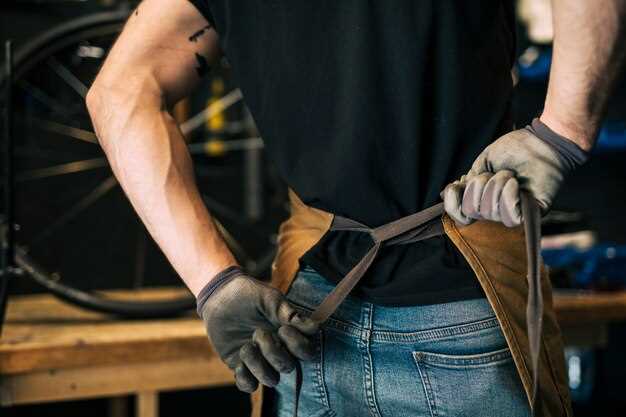
Dents in vehicles can be an eyesore and may lead to a decrease in resale value. Fortunately, advancements in technology have led to the creation of various DIY dent removal tools that offer car owners a chance to fix minor damages without the need for professional help. While the idea of saving money and performing repairs at home is appealing, it is essential to weigh the pros and cons of these tools before diving into the DIY world.
On one hand, DIY dent removal tools can be cost-effective, easily accessible, and user-friendly for those willing to learn new skills. They allow car owners to take control of their vehicle’s appearance and can potentially save hundreds of dollars in repair costs. However, there are also drawbacks to consider, including the risk of damaging the paintwork or the underlying structure of the vehicle if not used correctly.
This article explores the various advantages and disadvantages of using DIY dent removal tools, providing insights that will help you make an informed decision about whether to tackle dent repairs on your own or seek out professional assistance. With the right knowledge and tools, you might just restore your vehicle’s pristine condition while avoiding the hefty bills from auto body shops.
Evaluating Cost-Effectiveness of DIY Dent Removal Tools

When considering dent removal for your vehicle, evaluating the cost-effectiveness of DIY tools is crucial. The initial investment in DIY dent removal tools can be significantly lower than professional services, making it an attractive option for budget-conscious car owners.
Typically, a basic DIY dent repair kit can range from $20 to $100, depending on the quality and type of tools included. For minor dents, such as those caused by hail or small impacts, these kits often provide adequate solutions that allow users to achieve satisfactory results without the hefty price tag of professional repairs, which can vary from $50 to several hundred dollars.
However, while DIY tools offer a lower upfront cost, users must consider the effectiveness of these tools. Not all kits are created equal; some may yield better results than others, and poor-quality tools may lead to further damage, translating into additional repair costs. Furthermore, using DIY methods requires a certain skill level; without proper technique, users may end up causing more harm than good.
Another factor to consider is the time investment. DIY repairs can be time-consuming, requiring research, practice, and patience. For those with busy schedules, the convenience of professional services may outweigh the cost savings of DIY approaches.
Ultimately, the decision boils down to individual circumstances. For individuals who are comfortable with hands-on projects and have the time to invest, DIY dent removal tools can be a cost-effective solution. Conversely, those who prioritize their time and prefer guaranteed results may find that the cost of hiring professionals is justified.
Assessing Skill Level Required for Successful Dent Removal

When considering DIY dent removal, it’s essential to assess your skill level to achieve satisfactory results. The complexity of the dent and the techniques used can significantly influence the required expertise. Starting with basic techniques, such as using suction cups or hot water, may only necessitate minimal skill. These methods can be effective for small, shallow dents and typically require no specialized knowledge.
However, more advanced techniques, like PDR (Paintless Dent Repair), demand greater proficiency. PDR involves manipulating the metal back into its original shape without damaging the paint, which requires a solid understanding of the underlying structure of the vehicle and the right tools. Mastery in this area often comes from practice and experience, making it less suitable for absolute beginners.
Additionally, identifying the type of damage is critical. Dents caused by hail or minor collisions might be more manageable, while larger dents or those that have creased the metal could require professional intervention. Skill assessment should also consider one’s mechanical aptitude and familiarity with tools, as using advanced equipment like dent pullers or rods effectively requires practice and precision.
Finally, conducting thorough research on techniques and effects of each method can help gauge personal skill alignment with the task. If there’s uncertainty about your capabilities, it may be worthwhile to consult professionals or consider training sessions to build necessary skills before attempting home repairs.
Understanding Potential Risks and Limitations of DIY Methods
While DIY dent removal tools can offer a cost-effective solution for minor dents, there are several potential risks and limitations that users should be aware of. One of the primary concerns is the possibility of damaging the vehicle’s paint or surface finish. Improper application of tools can lead to scratches, chipped paint, or even worse, rust formation if the metal is exposed.
Another significant risk is the chance of ineffective results. Many DIY methods may not address the underlying issue, resulting in a dent that persists or leads to further complications down the line. In some cases, attempting to fix a dent without proper experience can lead to worsening the problem, making it more difficult or costly to repair professionally.
DIY dent removal also often lacks the precision and expertise that professional services offer. Trained technicians have experience and specialized equipment that enable them to assess the damage accurately and apply the most effective techniques, something that a DIY approach might not achieve. This can result in uneven surfaces or less aesthetically pleasing results compared to professional work.
Additionally, the availability and suitability of DIY tools may vary widely, depending on the type and size of the dent. Some dents, particularly those on complex vehicle shapes or materials, may require advanced techniques or tools not found in typical DIY kits. Users may find themselves investing in multiple products without achieving satisfactory results, leading to frustration and wasted resources.
Lastly, time and effort must also be considered. DIY repairs can be time-consuming, requiring substantial effort to learn and execute techniques correctly. For individuals unfamiliar with car maintenance, this process can be overwhelming and may result in subpar outcomes, making professional assistance the better option in some cases.

